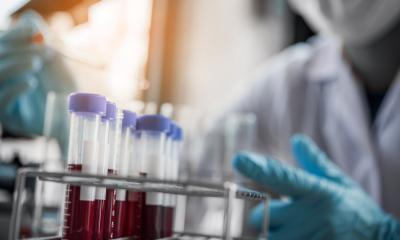Image by Gerd Altmann from Pixabay
News • Experts: The reliance on others must stop
Covid pandemic underlines need for change in EU blood acquisition
The Plasma Protein Therapeutics Association (PPTA) welcomes the European Commission’s publication of the Inception Impact Assessment (IIA) as a necessary step in the ongoing evaluation of the EU legislation on blood, tissues, and cells (BTC).
Rightfully, the assessment underlines the need for timely action to decrease Europe’s reliance on third countries for plasma. The PPTA appeals to authorities to urgently take the necessary steps to collect more plasma through plasmapheresis in Europe. As highlighted by the European Commission, plasmapheresis is a more efficient collection method compared to the collection of recovered plasma1.
The Covid-19 outbreak has underlined Europe’s reliance on plasma imported from the United States. PPTA is aware of significant declines in plasma donations globally this year caused by the ongoing Covid-19 pandemic. Reduced plasma donations present serious risks to the lives of people around the world who rely on medicines derived from plasma. The evaluation of the European Blood Directive had already identified the absence of contingency planning in times of crisis as a shortcoming in many Member States.
Europe is currently reliant on the U.S. for 37% of its plasma while only four European countries (Austria, Czech Republic, Germany, and Hungary) contribute more than 55 % of the total amount of plasma collected in Europe for manufacturing. These four countries allow the coexistence of public and privately owned collection centres and compensate donors for expense and inconvenience related to the donation.
The Commission’s IIA emphasizes that “in the current legislation no concrete measures to increase plasma supply have been taken, which has not proven adequate to protect EU patients from the risk of shortages or sudden supply disruption.” Given this, PPTA proposes that European policymakers take the necessary steps to:
- establish dedicated plasma collection (plasmapheresis) programs and outreach campaigns towards plasma donors in all EU Member States;
- stimulate plasma donations by also allowing compensation for expenses and inconveniences related to the donation, similar to EU Tissues and Cells Directive (2004/23/EC, article 12.1);
- allow the private sector to operate in coexistence with the public sector in establishing plasma collection centers;
- differentiate between whole blood and plasma collection for manufacturing PDMPs, which is currently lacking in many policy frameworks, by clearly defining plasma and donor compensation.
“Germany, Austria, Czech Republic, and Hungary collect three times more plasma per resident compared to other countries,2” said Maarten Van Baelen, Executive Director, PPTA Europe. “These countries embrace the expertise of the private sector and implement the principle of Voluntary Unpaid Donations in a way that permits donor compensation for expenses and inconveniences related to the donation.”
References:
1 Statement from the European Commission “Coronavirus: European Commission strengthens support for treatment through convalescent plasma”. More info here: https://ec.europa.eu/commission/presscorner/detail/en/ip_20_1435
Source: Plasma Protein Therapeutics Association (PPTA)
19.11.2020





